New Hampshire offers a diverse range of hiking experiences, from easy family-friendly trails to challenging summit climbs, with breathtaking views of mountains, forests, and waterfalls․
Best Hiking Trails in New Hampshire
New Hampshire’s White Mountains boast iconic trails like Franconia Ridge and Mount Monadnock, offering scenic views for both novice and experienced hikers․
Mount Monadnock Trail
Mount Monadnock Trail is one of the most climbed mountains in the U․S․, offering a moderate to challenging 4․4-mile round-trip hike․ With an elevation gain of 1,800 feet, it takes 3-4 hours to complete․ The summit provides stunning panoramic views of the surrounding landscape․ Best visited from spring to fall, the trail features a large parking area with a $5 fee․ Its well-marked paths cater to both novice and experienced hikers, making it a must-visit for nature enthusiasts seeking rewarding views and a memorable outdoor experience in New Hampshire․
Franconia Ridge Loop Trail
The Franconia Ridge Loop Trail is a challenging yet rewarding 9-mile hike in New Hampshire’s White Mountains․ It features stunning ridge-line views, traversing from Little Haystack Mountain to Mount Lafayette․ Known for its scenic beauty, the trail offers breathtaking panoramas and alpine environments․ With its moderate to difficult terrain, it attracts experienced hikers seeking a full-day adventure․ The trail is part of the Appalachian Trail and is particularly popular for its dramatic vistas and unique geological formations, making it a standout destination for outdoor enthusiasts in the Granite State․
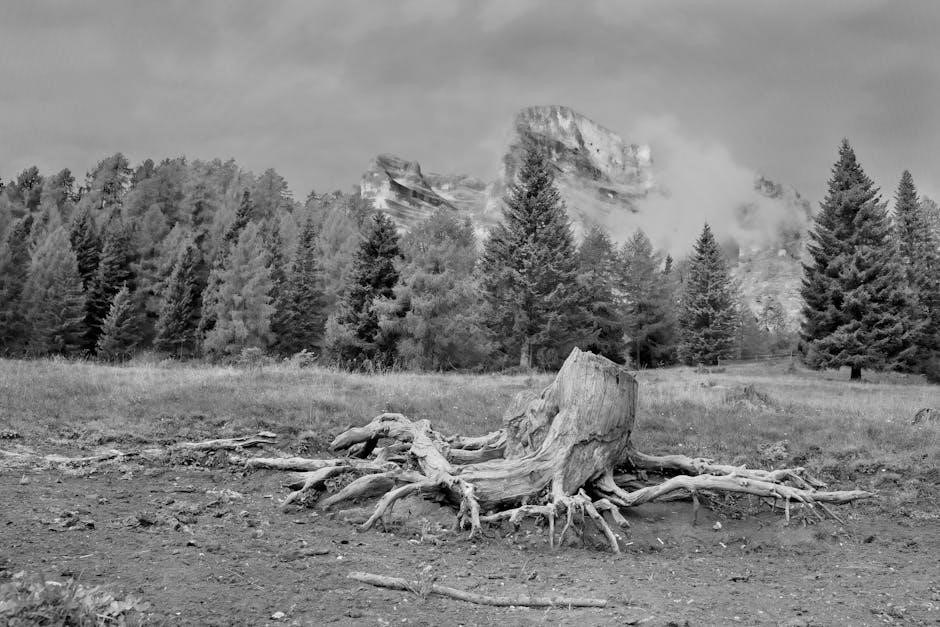
Easy and Family-Friendly Hikes
New Hampshire offers scenic, short trails perfect for families and beginners, such as Mount Willard and Lonesome Lake, providing stunning views with minimal difficulty․
Mount Willard Trail
Mount Willard Trail is a 1;6-mile, moderately easy hike offering breathtaking views of Crawford Notch․ Its gradual incline makes it accessible to families and inexperienced hikers․ The trail leads to a stunning cliff overlook, providing panoramic vistas of the surrounding mountains and valleys․ Perfect for a short, rewarding adventure, Mount Willard is a popular choice for those seeking a quick escape into nature without the challenge of a rigorous climb․ Its well-maintained path ensures a pleasant journey for hikers of all ages․
Lonesome Lake Trail
Lonesome Lake Trail is a 3․2-mile loop hike that offers a serene and picturesque experience․ The trail is considered easy to moderate, making it ideal for families and those seeking a peaceful adventure․ It winds through lush forests and ends at the tranquil Lonesome Lake, where hikers can enjoy stunning views and relax by the water․ The trail’s well-marked path and manageable elevation gain make it a popular choice for nature enthusiasts looking to connect with New Hampshire’s natural beauty without a strenuous climb․
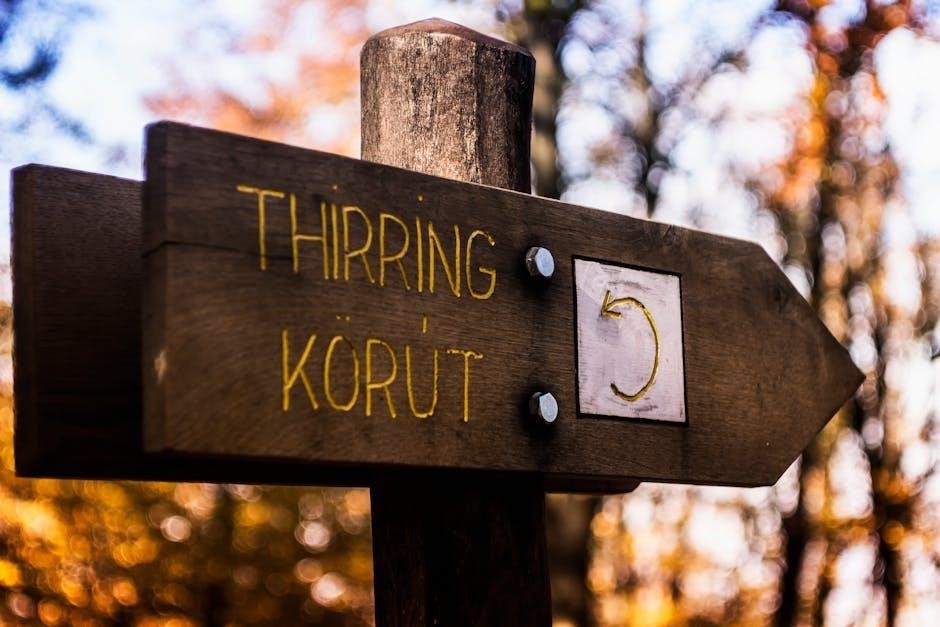
Challenging Hikes for Experienced Hikers
Challenging hikes in New Hampshire offer rugged terrain, high elevation gains, and stunning scenic rewards, perfect for those seeking a test of endurance and skill․
Mount Lafayette and Franconia Ridge Trail Loop
Mount Lafayette and Franconia Ridge Trail Loop is a challenging 9-mile round-trip hike known for its dramatic alpine views and rugged terrain․ This trail, part of the White Mountains, offers hikers a chance to traverse Franconia Ridge and summit Mount Lafayette, with an elevation gain of over 3,500 feet; The rewarding panoramas of the Pemigewasset Wilderness and surrounding peaks make this hike a must for experienced adventurers․ Proper gear and physical conditioning are essential for this demanding but breathtaking journey․
Mount Washington Alpine Garden Trail
Mount Washington Alpine Garden Trail offers a challenging hike with stunning alpine flora and panoramic views․ Located in the Presidential Range, this trail is known for its rugged terrain and dramatic elevation changes; Hikers can explore unique alpine gardens and enjoy breathtaking vistas from the summit․ The trail is part of a larger network of paths in the White Mountains, making it a favorite for nature enthusiasts and experienced hikers seeking a rewarding adventure amidst New Hampshire’s natural beauty․
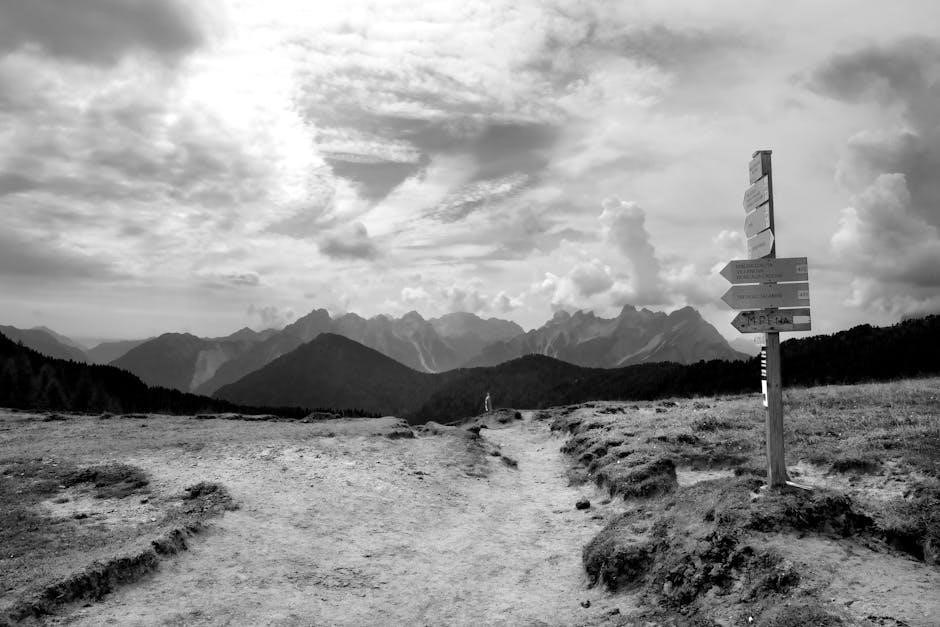
Hikes to Waterfalls
Discover New Hampshire’s stunning waterfalls through scenic hikes․ Explore Franconia Falls’ crystal-clear waters and Arethusa Falls, the state’s tallest at 70 feet, via well-marked trails․
Franconia Falls
Franconia Falls is a breathtaking destination for hikers seeking serene natural beauty․ Located along the Franconia Ridge Loop Trail, the falls cascade into a crystal-clear pool, surrounded by lush greenery․ The trail, though challenging, rewards hikers with stunning views of the White Mountains․ The falls are a perfect spot to relax and enjoy the tranquility of nature after a rewarding hike․ This location is a must-visit for anyone exploring New Hampshire’s waterfalls, offering a unique and memorable outdoor experience․
Arethusa Falls
Arethusa Falls, located in Crawford Notch State Park, is one of New Hampshire’s most iconic waterfalls, standing at 140 feet tall․ This moderate 1․5-mile hike offers a rewarding experience, with the falls cascading into a clear pool surrounded by lush forest․ The trail is well-maintained and suitable for most hikers, providing a serene escape into nature․ Arethusa Falls is a must-visit for waterfall enthusiasts, offering a picturesque backdrop for photography and reflection․ Its natural beauty makes it a standout destination in the White Mountains․
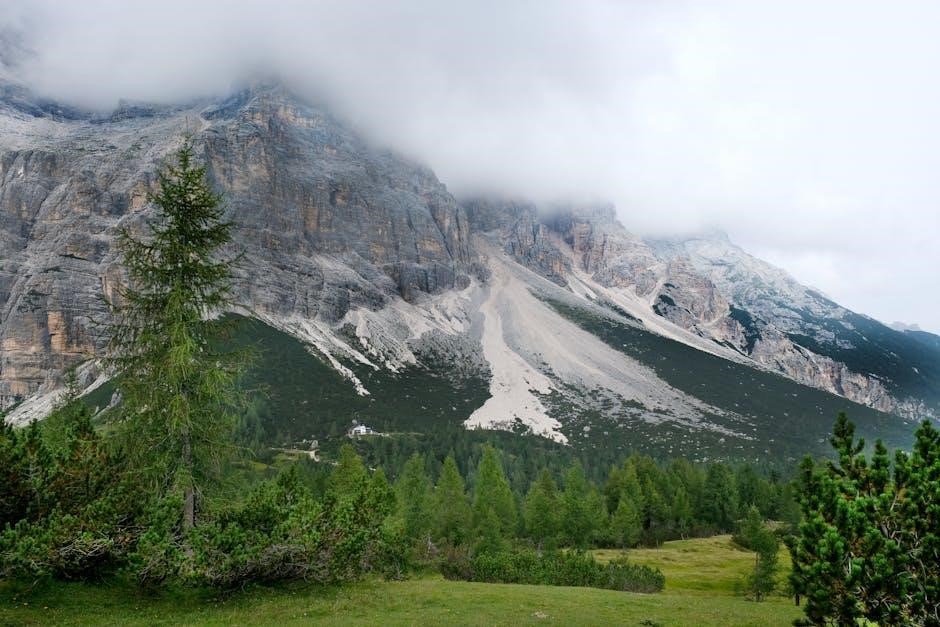
Scenic Loop Hikes
New Hampshire’s scenic loop hikes offer panoramic views, challenging terrain, and breathtaking scenery․ Trails like Welch-Dickey Loop and Artist Bluff provide diverse experiences, from forested paths to rugged summits․
Welch-Dickey Loop
The Welch-Dickey Loop is a 4․5-mile trail known for its challenging yet rewarding terrain․ Featuring open ledges, hardwood forests, and scenic overlooks, it offers stunning views of the surrounding mountains․ The trail includes a mix of steep climbs, smooth paths, and rugged sections, making it a popular choice for hikers seeking a diverse experience․ With an elevation gain of over 1,800 feet, it’s a great option for those looking to challenge themselves while enjoying the natural beauty of New Hampshire’s landscape․
Artist Bluff Trail
The Artist Bluff Trail is a short yet rewarding 1․5-mile round-trip hike in Franconia Notch State Park․ Known for its stunning panoramic views, the trail leads to a rocky bluff overlooking Echo Lake and the surrounding mountains․ With an elevation gain of 300 feet, it’s accessible for hikers of all skill levels․ The trail features unique rock formations and vibrant foliage during fall․ It’s a perfect choice for families or those seeking a quick adventure with breathtaking scenery, making it a must-visit for nature enthusiasts and photographers alike․
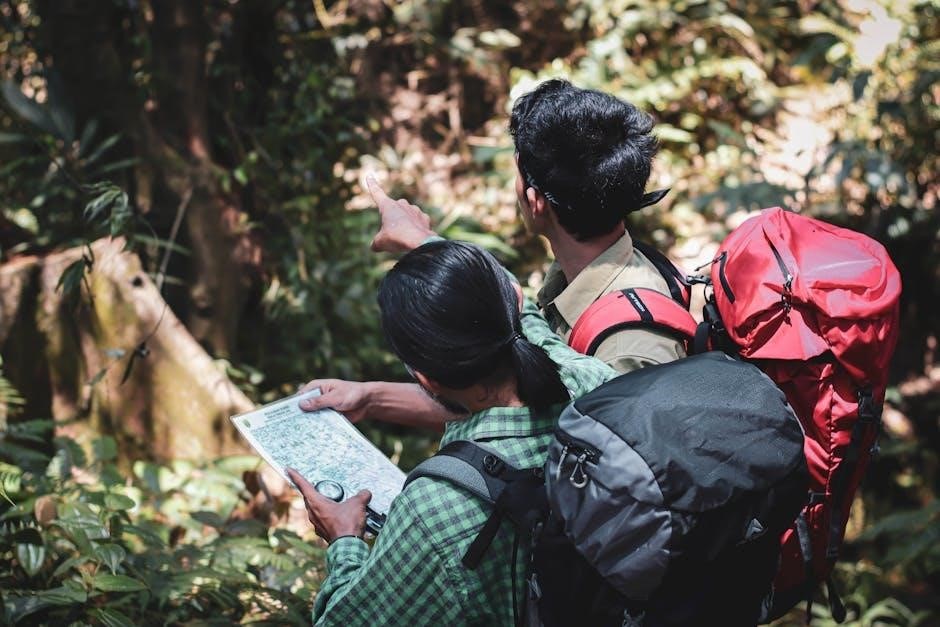
Solo Hiking Options
New Hampshire offers ideal trails for solo hikers, providing serene landscapes and a sense of adventure․ Trails like West Rattlesnake Mountain and Black Cap are perfect for independent exploration, offering scenic views and a safe, rewarding experience for those hiking alone․
West Rattlesnake Mountain
West Rattlesnake Mountain offers a 2-mile round-trip hike with moderate elevation gain, perfect for solo adventurers․ The trail provides scenic views of Squam Lake, making it a rewarding experience for hikers of all skill levels․ Its well-marked path and manageable terrain ensure a safe and enjoyable journey, ideal for those seeking solitude and connection with nature․
Black Cap Hiking Trail
Located in the Green Hills Preserve, the Black Cap Hiking Trail offers a 2-mile round-trip hike with moderate difficulty․ The summit provides panoramic views of the surrounding valleys and mountains, making it a popular choice for hikers․ The trail features a mix of forested paths and open ledges, creating a scenic and varied experience․ It’s an excellent option for both families and experienced hikers seeking a manageable yet rewarding adventure in New Hampshire’s picturesque landscape․

Winter Hiking in New Hampshire
Winter hiking in New Hampshire offers serene landscapes and challenging trails․ Explore Mount Moosilauke or Northern Rail Trail with snowshoes․ Always check trail conditions and gear up for a safe adventure․
Mount Moosilauke
Mount Moosilauke, located in the White Mountains, is a popular winter hiking destination․ Its summit elevation of 4,802 feet offers stunning panoramic views․ The Gorge Brook Trail is the easiest route, while the Carriage Road provides a steeper challenge․ Winter hikers can enjoy snowshoeing or backcountry skiing on its slopes․ The mountain’s open summit and scenic trails make it a must-visit for those seeking a memorable winter adventure․ Proper gear and trail condition checks are essential for a safe and enjoyable experience․
Northern Rail Trail
The Northern Rail Trail is a 21․5-mile multi-use path in New Hampshire, part of the Granite State Rail Trail․ It stretches from Lebanon to Boscawen, offering a flat, gravel surface ideal for hiking, biking, and cross-country skiing․ The trail passes through forests, wetlands, and rural landscapes, providing scenic views and opportunities to spot wildlife․ It’s suitable for all skill levels and is a great option for families or those seeking a leisurely winter hike․ The trail’s diverse terrain and year-round accessibility make it a popular choice for outdoor enthusiasts․
Safety Tips and Best Practices
Always carry a map, inform someone of your plans, and stay on marked trails․ Bring enough water, snacks, and layers for changing conditions․ Respect wildlife and nature․
Essential Gear for Hiking
Sturdy, waterproof hiking boots, moisture-wicking clothing, and layers for varying weather are must-haves․ Bring a backpack with a map, compass, and GPS device or app․ A first-aid kit, headlamp, and extra batteries are crucial․ Don’t forget a reusable water bottle or hydration bladder, snacks, and a lightweight rain jacket․ Sunscreen, insect repellent, and trekking poles can enhance comfort․ Always check weather forecasts and adjust your gear accordingly for a safe and enjoyable hike․
Weather and Trail Conditions
New Hampshire’s weather is notoriously unpredictable, with rapid changes in conditions․ Always check local forecasts and trail reports before hiking․ Trails can be muddy in spring, hot and dry in summer, and icy in winter․ Snow-covered paths in winter require crampons or microspikes, while spring trails may have standing water․ Summer storms can bring sudden rain, so carrying a map and knowing the route is essential․ Stay informed about trail closures or maintenance to ensure a safe and enjoyable hiking experience․



